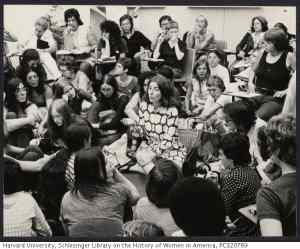
Facilitating for Gender Balance
Men frequently participate more than women in meetings, forums and other events. This article outlines practical steps facilitators and participants can take to ensure women are heard.


Men frequently participate more than women in meetings, forums and other events. This article outlines practical steps facilitators and participants can take to ensure women are heard.

This toolkit is a short guide to strategic communications, based on extensive research and building on the experience of activists and communicators from around the globe. It aims to provide a framework rather than a blueprint; helping you to ask the right questions rather than giving you the right answers.

Anat Shenker-Osorio shows how to apply research findings around communicating about race and class to the increasing white nationalism, xenophobia and race-based attacks that punctuate politics around the globe.

The goal of this book is to help become more aware of your own relationship with power. Despite the many negative associations and memories we have about power (mostly it’s misuse), power isn’t good or bad, and it is necessary.

Allies work is key to building strong and diverse groups and social movements. An ally is someone outside an oppressed group or identity, who commits to standing alongside those people.

Decolonizing Solidarity is a book by Clare Land which offers directions (and knotty dilemmas) to people seeking to support Indigenous Struggles. This article includes suggested guidelines for book clubs discussing Decolonizing Solidarity which are also beneficial for other groups doing anti-oppression and ally work.

Tyson Yunkaporta discusses Indigenous thinking on power, change, being and coping with chaos.

The ChangeMakers podcast is short series podcast that tells stories about people who are striving for social change across the world.

Carly Findlay – appearance activist, writer and speaker – reminded us at Progress 2017 that “disability is the forgotten part of diversity,” and it’s time to step up.

Winnie Byanyima, Executive Director of Oxfam International, makes the case for people power to address economic inequality and social exclusion, at Progress 2017.

Oaktree CEO, Sashenka Worsman, challenged us at Progress 2017 to realise the potential and and importance of engaging young people in our social change movements.

Micah Scott, CEO of Minus18, presented at Progress 2017 on the disjunct between the increasingly queer and inclusive younger generations and the remaining homophobia, biphobia and transphobia entrenched in Australian society.

What would society look like if we saw young people’s opinions as a product of their values and experiences and not just of their age? Australian Youth Representative to the UN, Paige Burton, reported back at #Progress2017 on her ongoing consultations with tens of thousands of young people across Australia.

Here is a list of crowdsourced ideas on how to make meetings and activism more welcoming and inclusive for parents/carers and their families.

The Timeline of Resistance was produced by Original Power as a training aid for Aboriginal & Torres Strait Islander communities as well as allies aiming to work in solidarity. The timeline summarises a history of campaigning and organising since invasion.
Sam Mostyn, President of the Australian Council for International Development (ACFID), at Progress 2017 talking quotas, Sustainable Development Goals, and the importance of including corporates in our work towards social justice.

Consciousness raising was a key element of the second wave women’s movement enabling women to recognise that the personal is political. This article gives an overview of group consciousness raising processes relevant for any group based on a shared identity or experience of oppression.

Is your campaign about people, or staff? Distributed, or centralised? This worksheet outlines six factors to think about when analysing how ‘open’ your campaigns are, from the participants of MobLab’s Open Campaigns Camp.

Change the world with boycotts, workplace action and memes, political campaigns, disaster relief, civil disobedience and more.